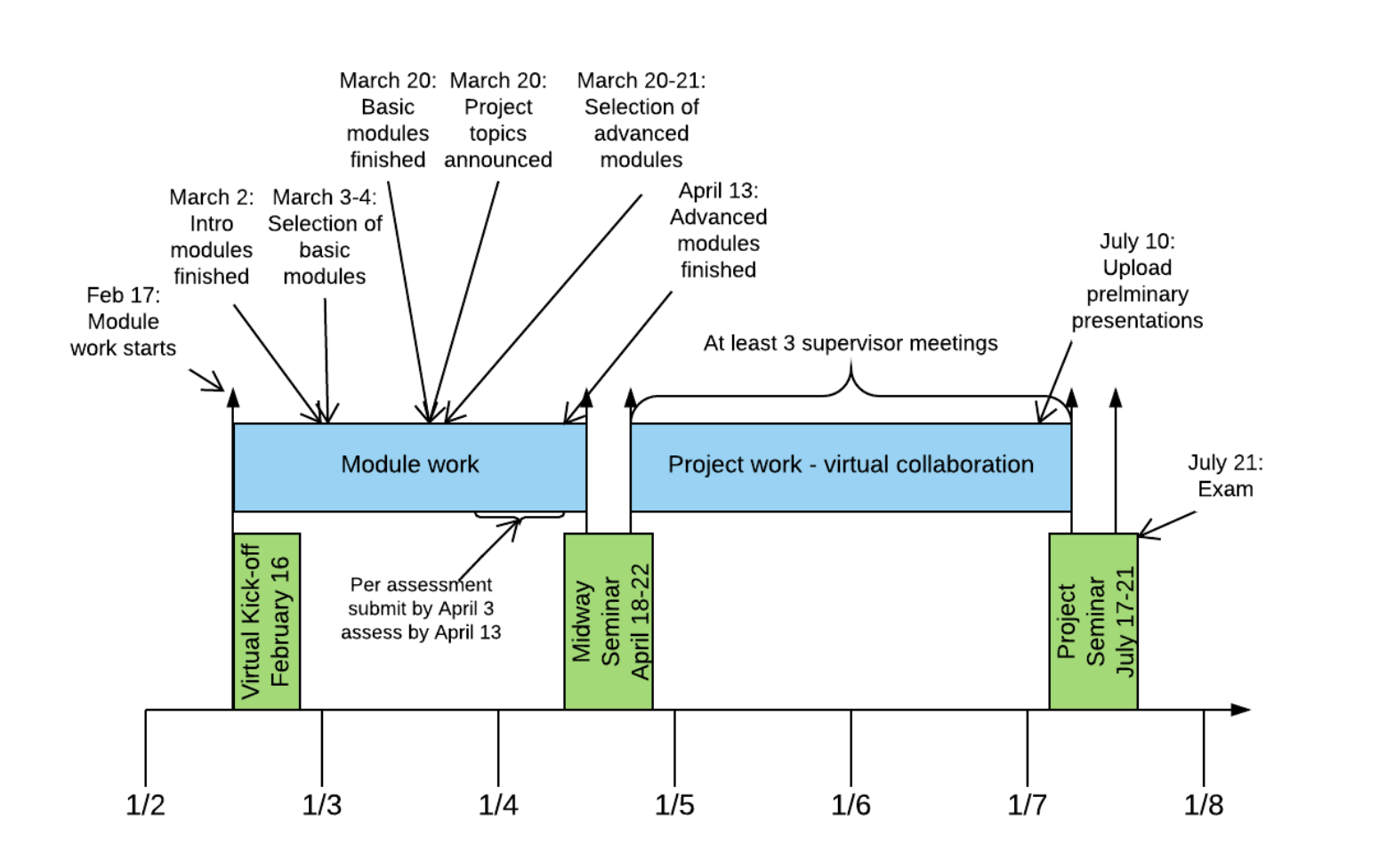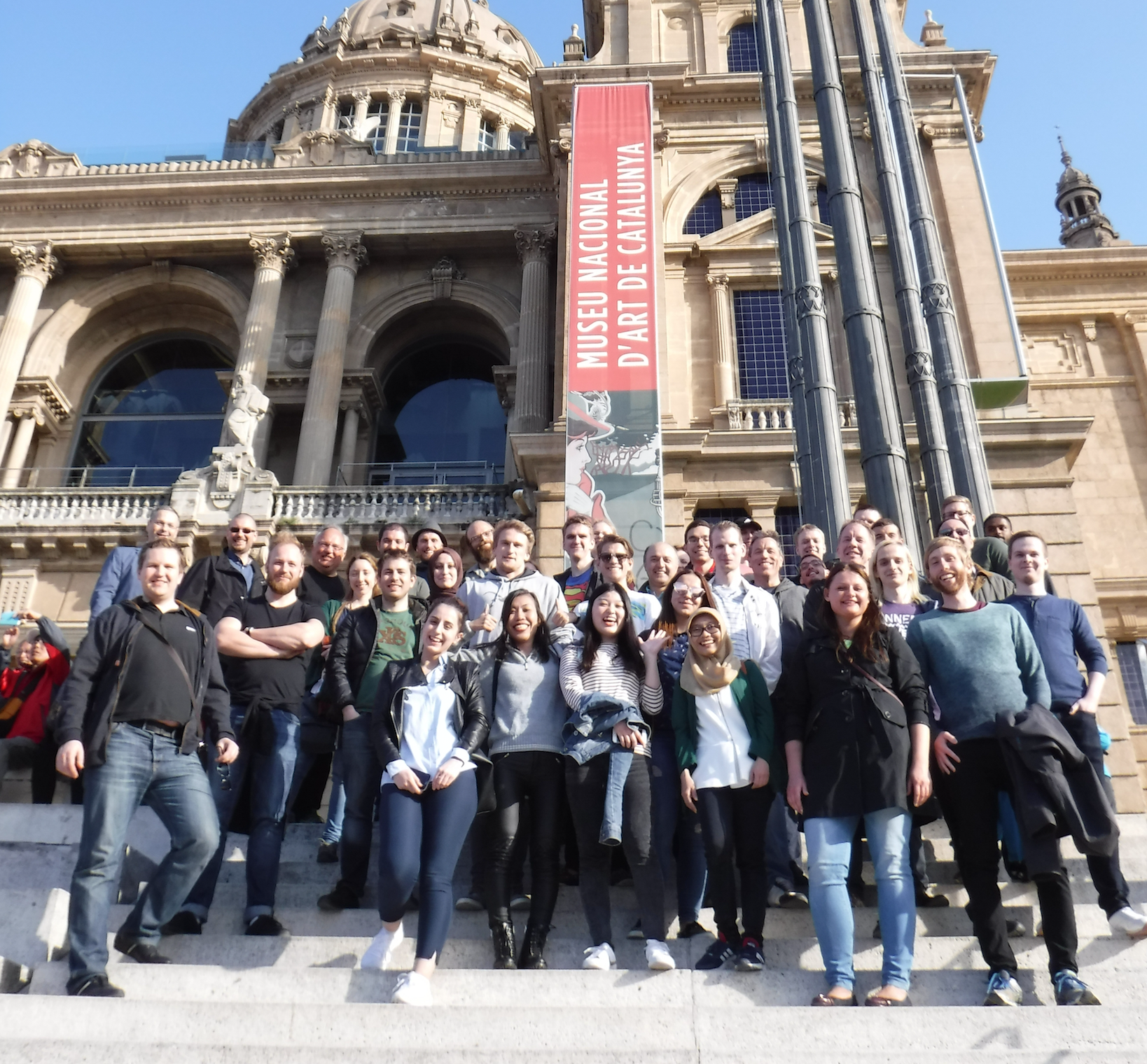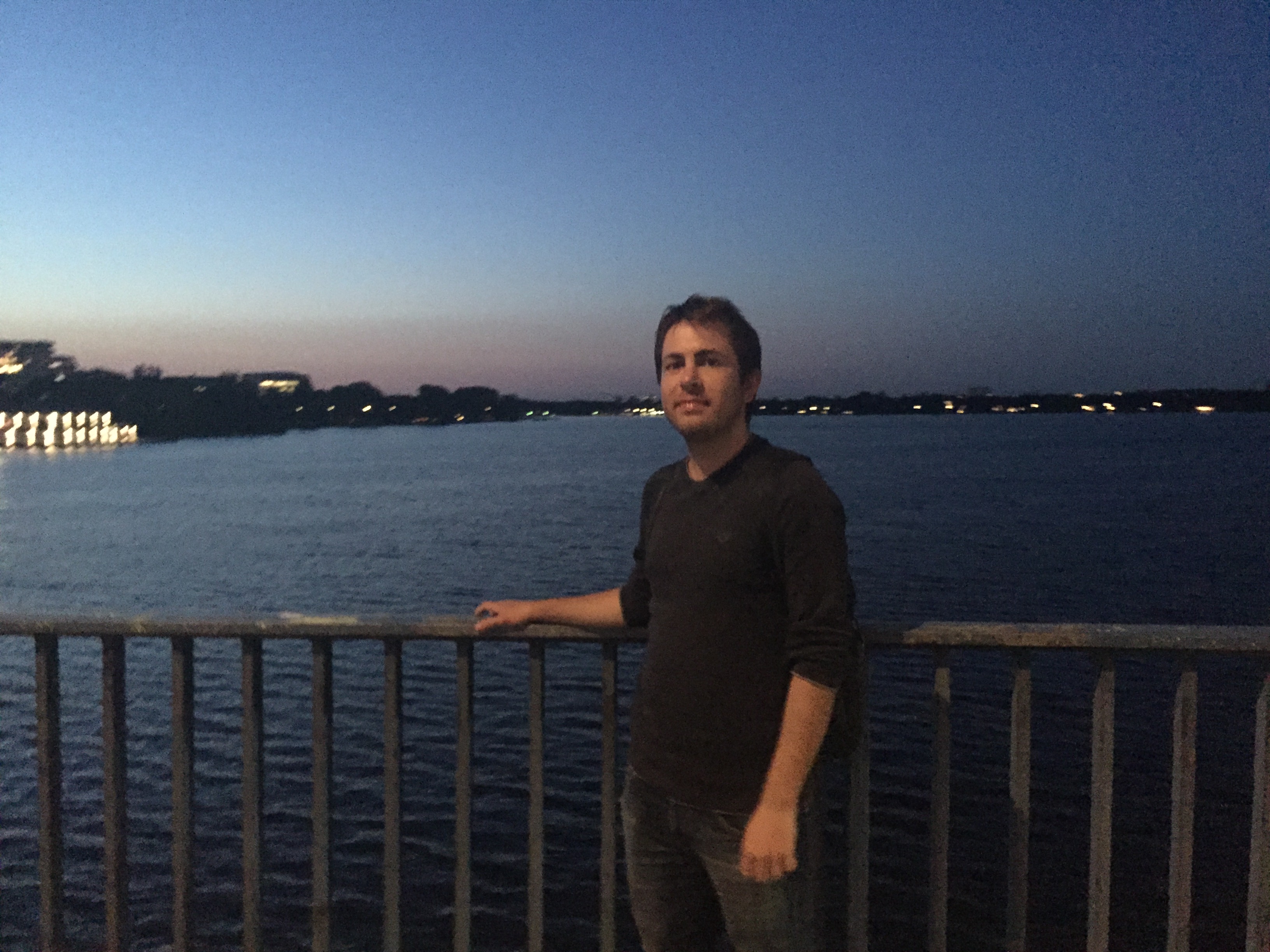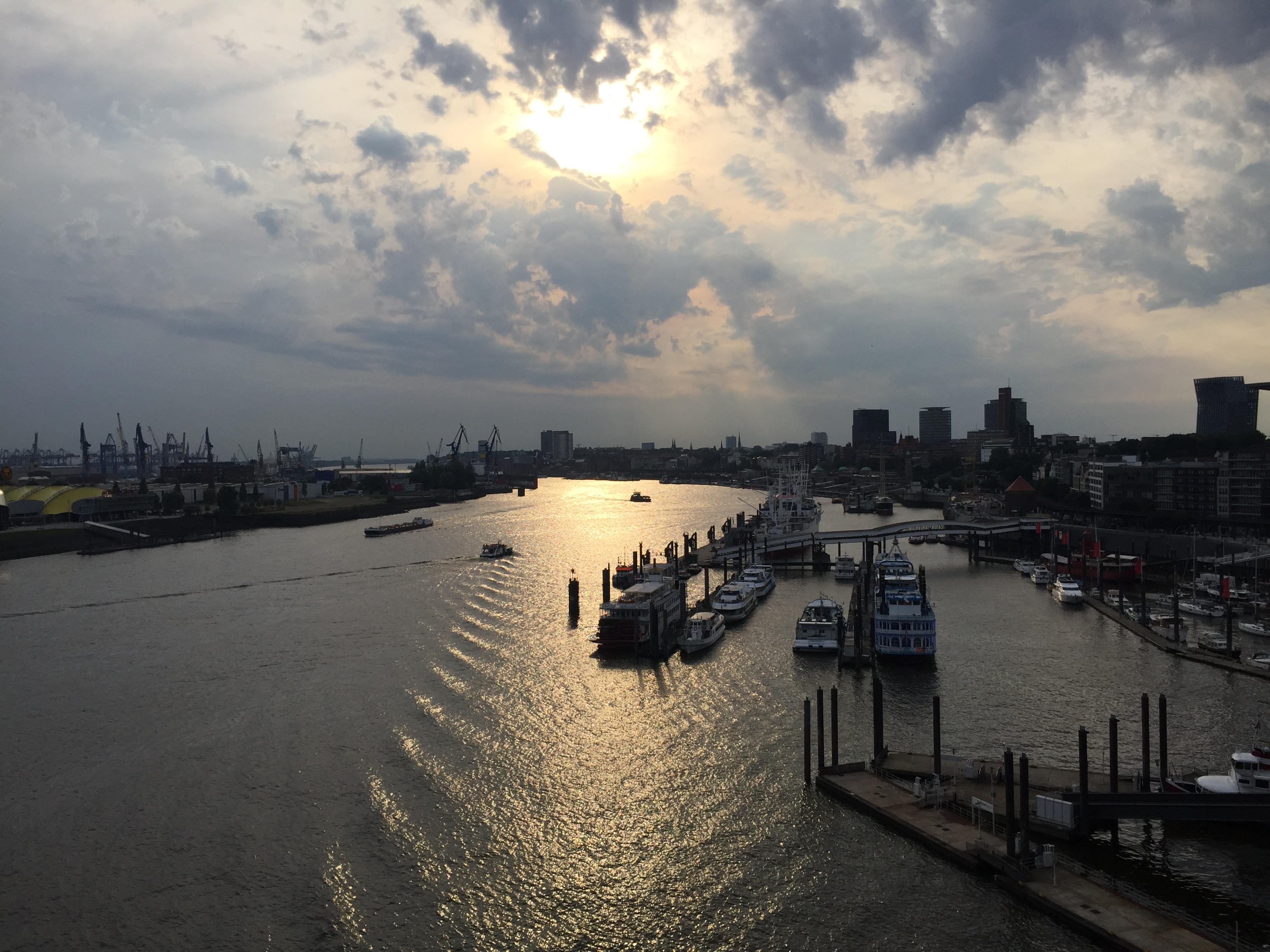I had many great experiences and memories in my first year at Bogazici University. However, if I choose one of them as the best, that would be the Colibri-Erasmus program carried out by seven universities and funded by the European Union. The program was for graduate students and its main goals were to give the students abilities and experience about developing group projects in an international-multicultural concept and exploiting online education technologies for various courses. This concept is called blended learning. Therefore, those seven universities were from seven different countries including Denmark, Turkey, Spain, Germany, Latvia, Norway, and Poland. Even though making a group project with your already known teammates is hard to do, you can imagine the gain/experience you would have when you accomplished this course successfully.
If you know, the Erasmus program is generally for undergraduate students and requires them to stay in another country for at least 3-4 months (an academic semester). However, considering graduate programs, fulfilling this requirement is hard due to graduate students usually work in a company. Thus, in this specific Erasmus program, there were only two one-week travels to two cities: Barcelona and Hamburg. The first travel was for Midway Seminar whose purpose is to introduce group projects and group members to each other. The second one, which is the Project Seminar was to finalize our projects and present them to the professors. Apart from the seminars, there were also other phases related to the course. Before the Midway Seminar, there was a virtual kick-off in which everyone including professors introduced himself/herself to each other briefly, and an online learning phase consisted of 10 different modules about networking and business lessons. Accordingly, after the Midway Seminar and before the Project Seminar, there was a virtual collaboration phase in which all students developed their projects and communicated with each other by using online meeting tools like Skype.

Online Learning Phase
In the online phase, we were working with modules of different levels. Some of the modules were business-related and others concerned specific technological areas (generally networking). Among the group that had been defined before modules, we were required to cover all modules on the basic level. This lead to a distribution where some people were forced to take modules that were outside their area of interest. For example, for me, those modules were the Enterprise Architecture, and Entrepreneurship. However, this requirement was important since the projects need those kinds of information to be known by each student. The structure of the modules with presentations and quizzes worked well so, we gained new knowledge. Particularly, it was nice to have quizzes along with the presentations, such that after learning new material for 3-4 minutes we were able to reflect about the material, when answering the quiz. Additionally, it was a nice aspect that we were able to take the modules from the comfort of our own homes, and at our own pace. Some people chose to complete the modules in one go, while others used the opportunity to stop and come back. This was very convenient.
Midway Seminar: Barcelona
The Midway Seminar was carried out in Barcelona from April 18 to April 22 at the Universitat Politecnica de Catalunya (UPC). As I said above, the main goal in this seminar was to introduce students and professors to each other, and to teach and show students how group projects are performed and what their benefits are. By the way, our projects had been defined and assigned one week ago before the Midway Seminar. So, we had already known the assigned projects and their members. For me, the project namely “Making Art More Accessible” was assigned to me with the other four students from various countries including Denmark, Latvia, Poland, and China. Moreover, the syllabus that is planned to perform in Barcelona for each day was also announced to us. The days were generally divided into two parts. While the first part from 09:00 to 17:00 was engaged to the course, the second part was for cultural activities. Obviously, like for each student, the second part including sightseeing, city walk, etc. was my favorite. Especially, since the city, Barcelona, is one of the best cities in the world, the cultural activities were very attractive. Barcelona is a beautiful city!
Before the seminar, I first thought that we immediately begin our projects after we present our presentations from the advanced modules in the online learning phase. However, it was not that way. After the presentations, we did team-building exercises following two days. The first exercise was to make the highest tower using the provided items like scissors, plastics, pipes etc. The second one was about a rescue puzzle. The team-building exercises were a good introduction to make the group work together smoothly as well as getting to know the characteristics of the other members of the group. The competitive nature of the team-building was very well, but also offered the opportunity to engage with the other groups to discuss their angle of attack. Moreover, the professors also participated in the team-building exercises on equal terms to the students. This was very well, as it made the professors more approachable to us, and that would become very beneficial once we started the project work, where we rely on the expertise of the professors. Most importantly, since the professor team was defeated by the student groups, it was a clever tactic to show that the professors also have flaws.
From my side, I was very enjoyed in cultural activities that we fulfilled at various places in Barcelona. On the arrival day, as Bogazici group, we toured the city for a couple of hours under the guidance of our professor, Tuna Tuğcu. The next day, which was the first day of the seminar, we also performed a guided city walk and a very good dinner at the restaurant Taller de Tapas. Following three days we visited Pablo Espanyol, Castle at Montjuic (with amazing harbor views and a great trip using the cable car), and Museu Nacional d’Art de Catalunya. We had also free time on the fourth and fifth day for shopping. On that day (5th), I visited La Sagrada Familia with my friend from Bogazici. Finally, on the last day, we had a dinner and farewell party by the beach which was great.


Virtual Collaboration Phase
The main part of the project was the virtual collaboration phase in which we had to make at least three online meetings. Therefore, we first agreed on one person to handle the technical side of arranging the virtual meetings (that was me) and someone to take notes during the meetings when we were in Barcelona. We made good use of different tools in the virtual phase. We settled on using doodle for arranging the time of the meeting, and we used Skype for the meetings. In course of the brainstorms we did on our Skype sessions, it was clear that people from different educational backgrounds and diverse cultural backgrounds looked at the same problem with different perspectives. For example, in the brainstorming of how to tackle the problem of making art more accessible, people from big countries were more thinking in the lines of making governmental initiatives, while people from small countries had great ideas of how to realize some business potential in solving the problem. On other points, we had quite similar perspectives. Together we came to a consensus about the direction of the project, and planned the further work that would be carried out in the virtual collaboration phase.
Project Seminar: Hamburg
The project seminar was carried out in Technische Universitat Hamburg-Harburg (TUHH) from July 17 to July 21. Since in this seminar we had to finish our tasks in the project and presented a well-prepared presentation as an exam, it was stressful and we were not enjoyed like we were in Barcelona. Of course, also the city contributed to this situation since we wore our coats and jackets in the middle of summer. Moreover, since Hamburg is an industrial city rather than a touristic, there are few places to visit compared to Barcelona. Thus, in Hamburg, there was a lot of time to work on the project.


In the virtual phase, we were quite clear about our tasks and the direction and outcome of the project. Therefore, we also ended up with the presentation for the exam consisted of a group presentation and a bunch of related questions. However, when we gathered in Hamburg and got feedback from the other groups and professors, we realized the shortcomings in our presentation, so the project needed further elaboration. This resulted in a total rework of the presentation, new and exciting discussions. Finally, like every project whose members are hardworking students, it was successfully finished. We passed the exam.
Conclusion
One day a Turkish, Chinese, Danish, Polish, and Latvian sit at the table and decide to make a project… Like a joke, but this is the truth we accomplished successfully. Even though group projects are hard to do due to several reasons, we performed this in an international-multicultural concept. Working with people of different backgrounds, cultures and expertise on a group project by considering most of the work performed virtually was a big challenge. However, with the tools and guidance throughout the process, we managed to learn new people and improve our abilities to collaborate and bring our individual expertise together in order to solve the general problem. Besides, there was a lot of learning and improvement of presentation skills and techniques. The extensive practice with the daily pitch presentations and the individual feedback and the general teaching of presentation techniques have resulted in great improvements in both confidence and communication abilities. It was nice to have a single go-to person where we could go and raise our concerns and get individual tips and tricks on how to improve.
Apart from the project and bunch of learning, a great aspect of the course was to be able to travel to new cities so see and experience the culture first hand. It was very nice to always be in the good hands of the local team of professors and students, who had put in a great effort to provide us the learning experience and guide us through cities. Otherwise, we would just have visited cities as simple tourists. Thus, I can say that Colibri-Erasmus was one of the best experiences I have.